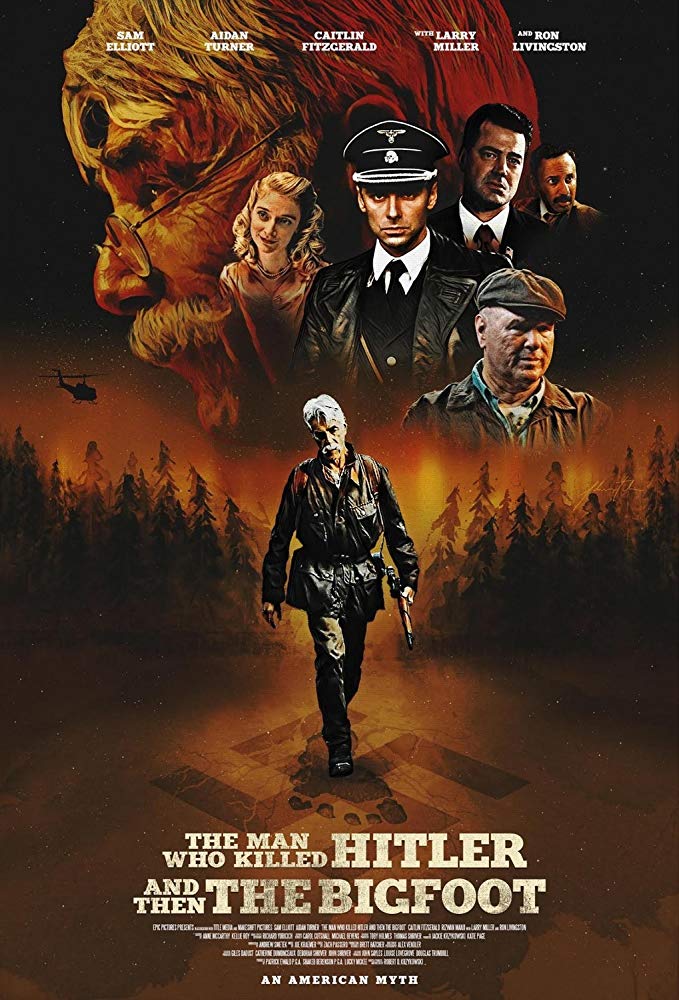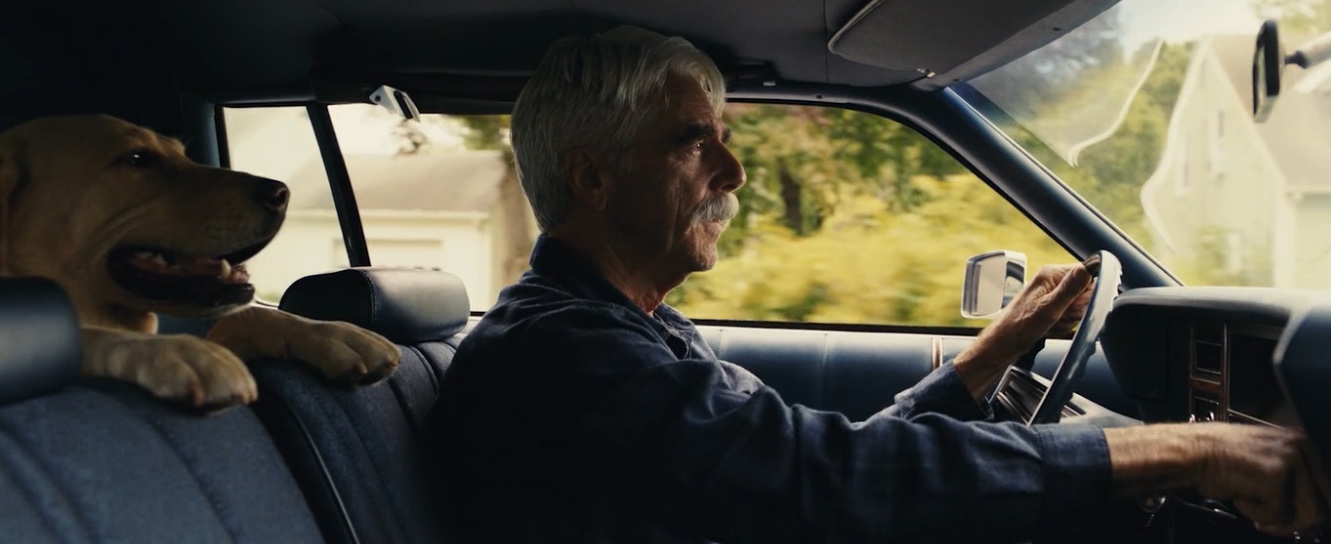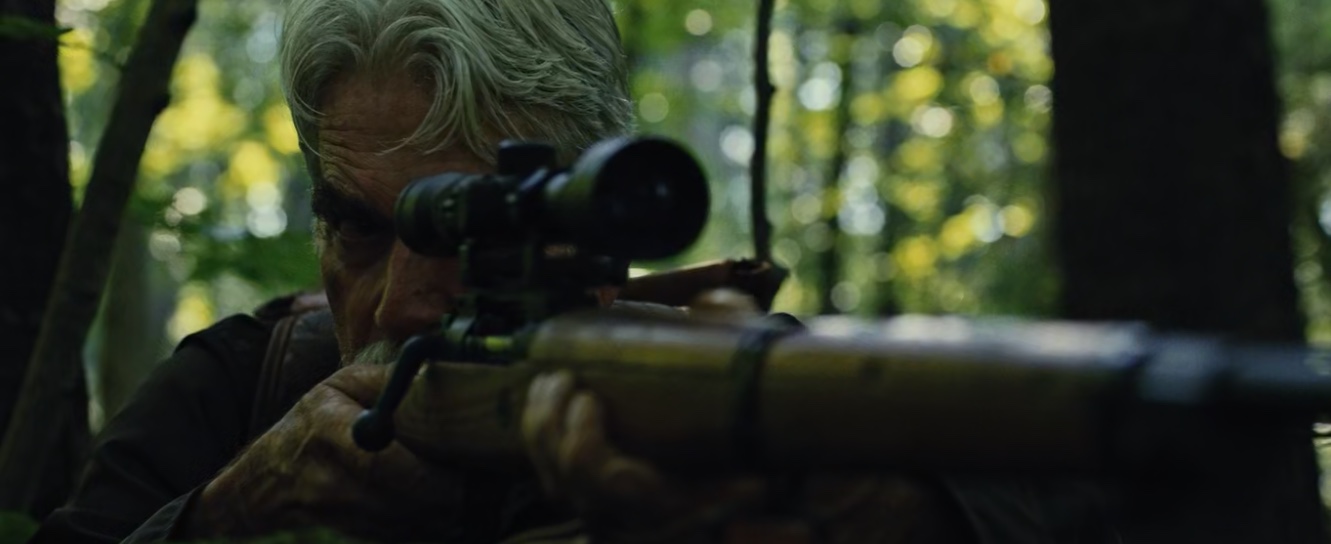
THE MAN WHO KILLED HITLER AND THEN THE BIGFOOT
Fantasia 2018 Film Festival Review
By Jeff Sanders
Debuting at this year’s Fantasia 2018 is an interesting low-key charmer with a film title that could stop a bullet midair. Sam Elliott is perfectly cast as a Calvin Barr, the man who, you guessed it, killed Hitler (at least the real Hitler) and has now been approached by the US and Canadian governments to kill, you guessed it, Bigfoot, who carries a viral plague that is spreading across the Canadian countryside. The direction of THE MAN WHO KILLED HITLER AND THEN THE BIGFOOT is not what you may expect with a synopsis and title like that. Similar to the writings of Joe R Lansdale, this script goes for a Dutch-angle-dramatic and philosophical approach to violence, nature, celebrity idolization and retrospection in agedness. Much like BUBBA HO-TEP’s elderly care center Elvis, or his Godzilla undergoing a 12-step program, the mythical man who helped stop a worldwide plague of death has a bit more going on in his soul than that of a comic book hero he sounds like.

THE MAN WHO KILLED HITLER AND THEN THE BIGFOOT is a quirky film that may turn off some viewers by being non-sensational in a sensational universe and a script that plays in A 2-part split narrative that jumps along multiple timelines. Writer/Director Robert D. Krzykowski chooses to frontload the film with the complete backstory and holds off on the introduction to the film’s premise until about 40 minutes into the film. That kind of storytelling is not usually put to film and is used more in the book world. I do appreciate him for mixing it up, although the film would have improved had he bulked up the mid-section of the film (the hunt) where Calvin must track the creature that harbors in its genetics a virus that could wipe out the entire population. The story wants to explore the idea that Calvin is hunting himself and must stop his soul’s curse from spreading but ends up driving too fast and missing the scenery. Like falling asleep on a road trip, we arrive at our destination, but we weren’t there for all the mile markers. It’s too bad, another few minutes of screen time could have really helped this film flesh out its interesting premise.

This is no reason to avoid this film. There is much to be appreciated in the wonky old school production value (Douglas Trumbull supervised) and sincere performances from a wide array of recognizable character actors. Elliot is top notch. He looks like a handsome hero and has a voice that is worn and honest. When he says he killed Hitler and is conflicted about killing Bigfoot, well, you believe him. Shining most in the peripheral ensemble is a hard to recognize Larry Miller, Calvin’s mild-mannered brother, who was too young to go to war, therefore able to live an innocent Barber’s life with a wife, children, and now grandchildren. Aidan Turner plays the younger Calvin, who receives a literal close shave of mystical proportions in preparation for his Hitler killing mission that will have a resonating impact on the rest of his life. Turner is good, but never quite hits the depth of Elliot’s older Calvin, but that is sort of the point. Sean Bridgers, Ron Livingston, Rizwan Manji and Caitlin FitzGerald are all recognizable faces that respectfully fill out the rest of the ensemble giving depth to their characters that might have been lost in other incarnations. Lucky for us the cast was up for the game. This film simply would not have worked if there were lesser actors.

I think fans of Joe Lansdale or Stephen King’s light-hearted work will appreciate this odd, thoughtful film about heroism. THE MAN WHO KILLED HITLER AND THEN THE BIGFOOT is not perfect, but with good performances, an ambitious premise, and a left-of-the-dial approach there is much to be appreciated.




